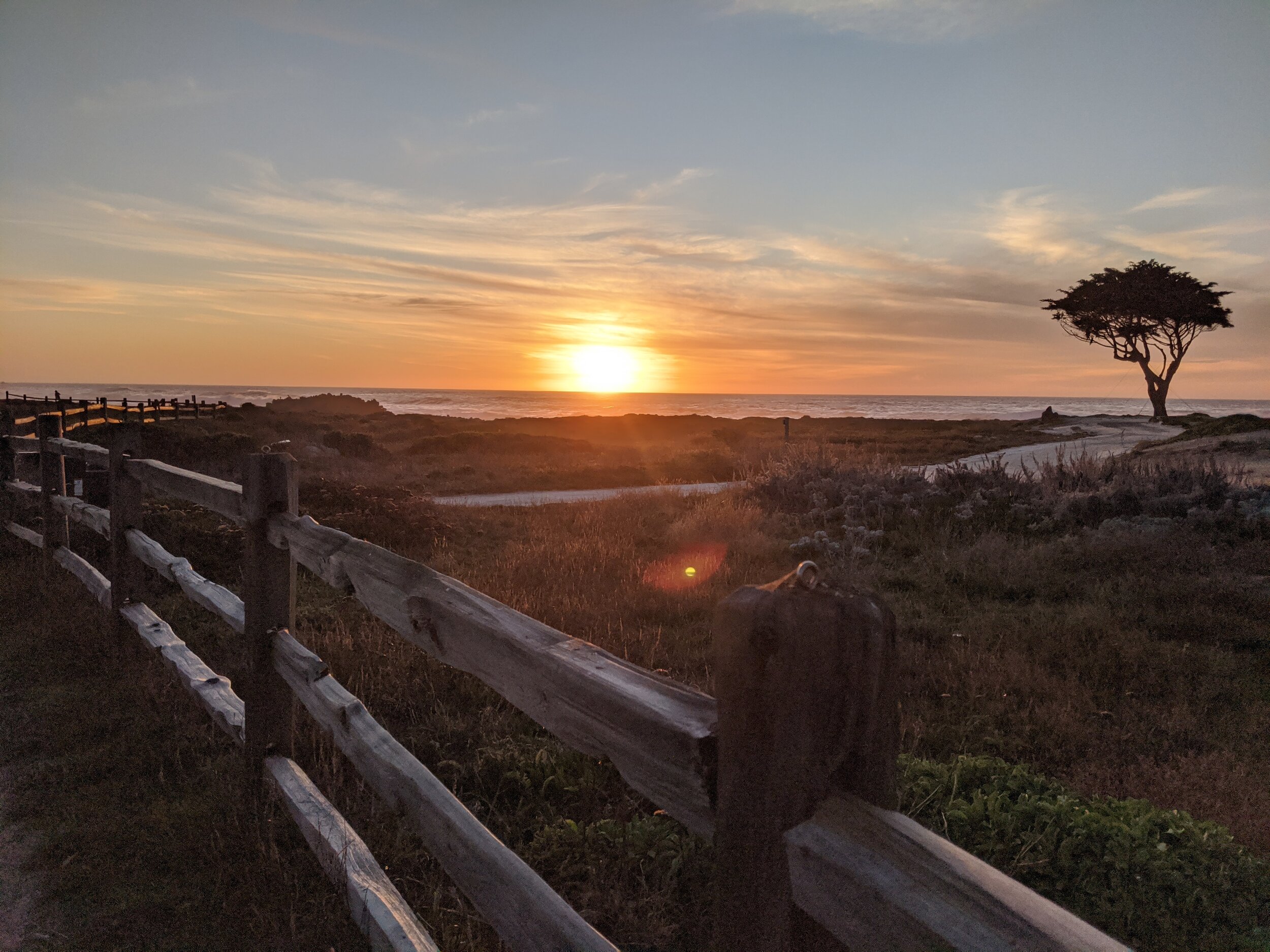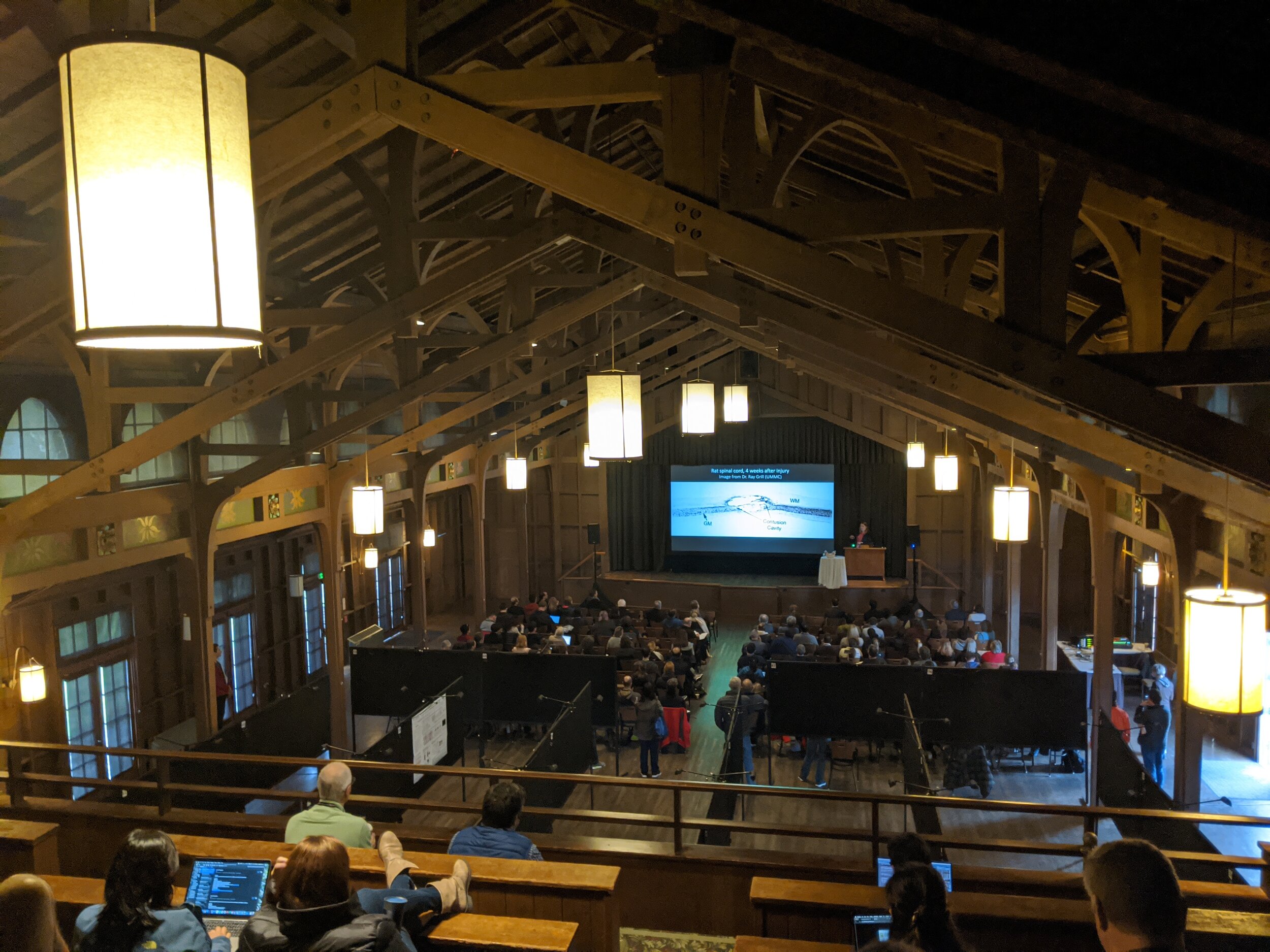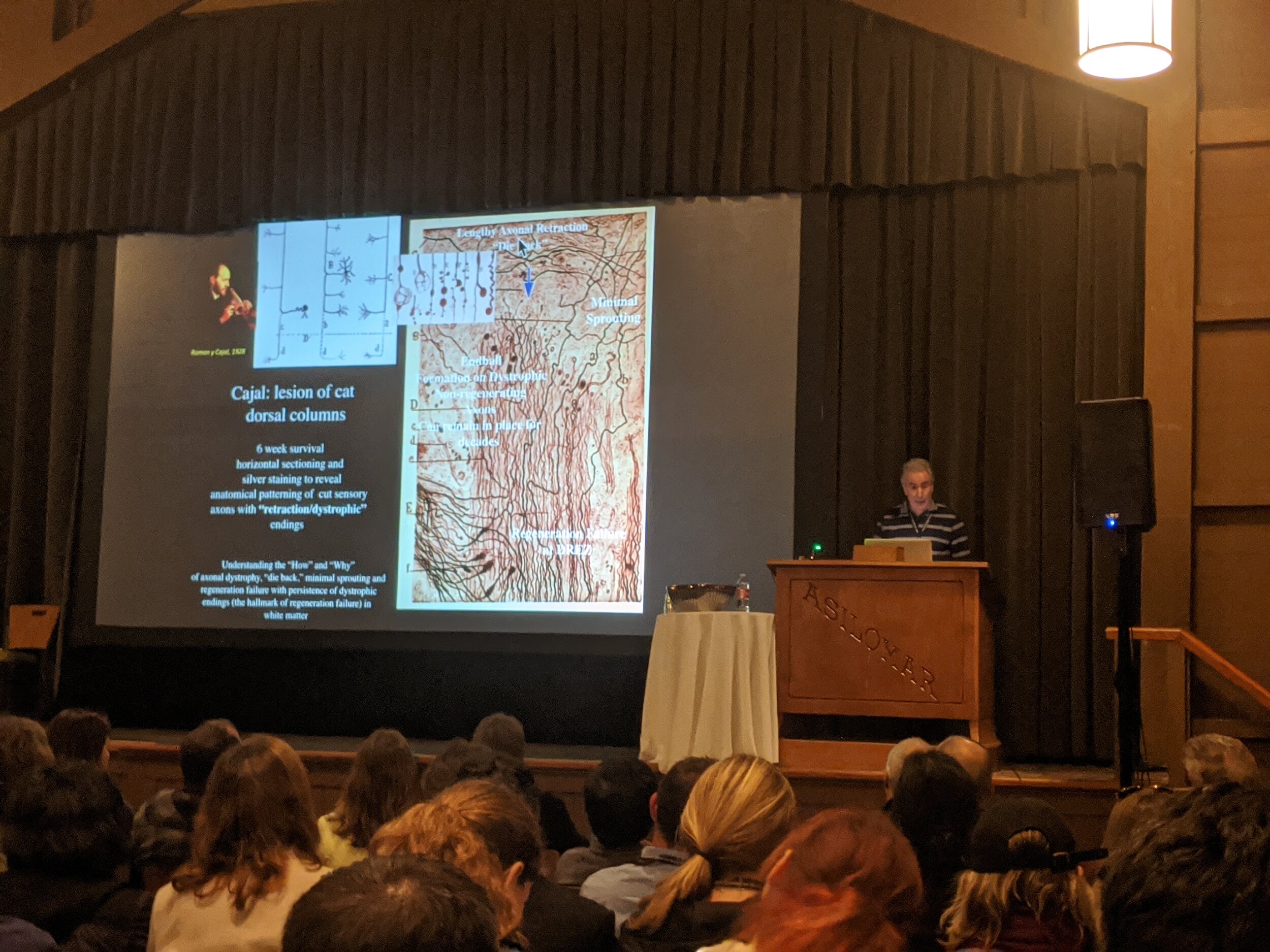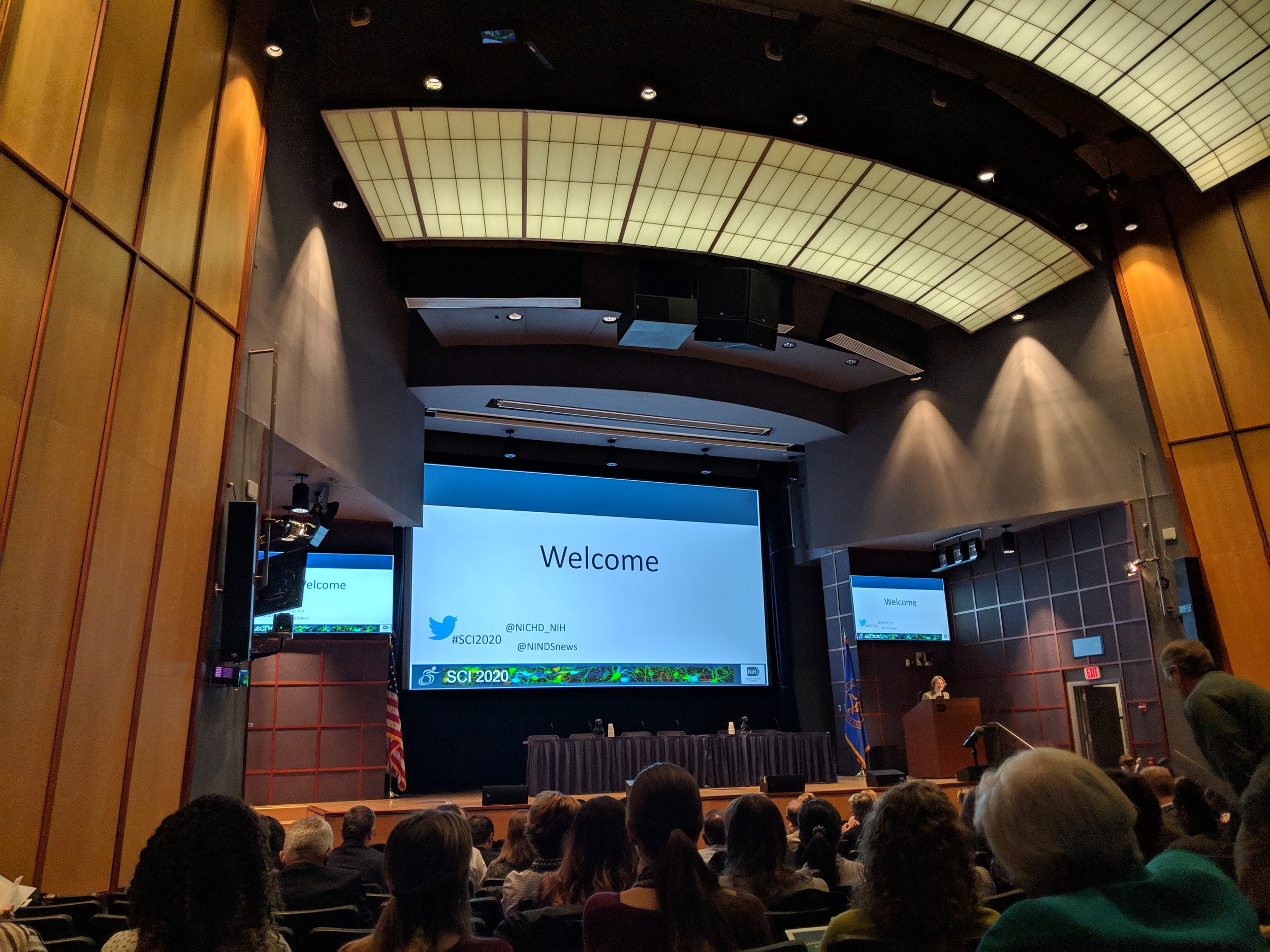



The Gaudet Lab showed up at Asilomar this year. Andrew presented new work compiled by Sydney Lee and our team, which is delineating the relative salience of pain vs. anxiety using a thermal preference apparatus. The data also show that spinal cord injury may modulate the relative salience of pain and anxiety.
As always, there were many highlights of this intimate meeting by the beach! There was the debate between Jerry Silver and Michael Sofroniew. There were compelling talks by the likes of Veronica Tom, Jen Dulin, and David Magnuson. There was the superb socializing with friends old and new. There were the daily post-conference meet-ups in small cabins on the campus. And there were sunset runs by the beach! It was certainly a worthwhile meeting. See you in 2022.









